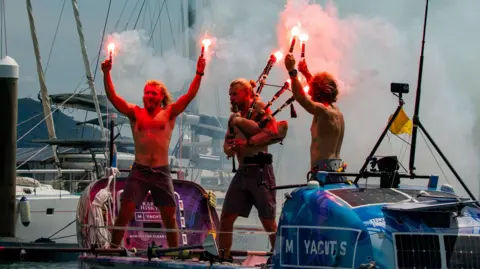In an inspiring development for marine conservation, over 20 new marine protected areas were designated during the third United Nations Ocean Conference in Nice, France. This event showcased a collaborative effort by various nations, including notable pledges from Chile, Colombia, French Polynesia, Portugal, and more, aimed at achieving the ambitious goal of protecting 30% of the world's oceans by the year 2030.
The newly delineated areas now safeguard precious marine habitats, such as remote coral atolls in the Caribbean and essential ecosystems for endangered sharks and rays surrounding the coast of Tanzania. Spanning about 900,000 square kilometers, the newly protected territories in the Pacific around French Polynesia contribute significantly to global conservation efforts.
Marine experts, including prominent figures like Sylvia Earle, championed the significance of these designations, noting a rising awareness and advocacy for ocean protection. However, the conference's backdrop revealed challenges as the U.S. maintained a stance geared towards commercial exploitation, reopening significant marine areas to such activities. Concurrently, discussions arose around the controversial practice of deep-sea mining, with France advocating for a moratorium, garnering progressively widespread support from neighboring nations.
The momentum generated at the conference is a critical stride toward marine conservation, though experts caution that the collective actions must grow substantially in number to ensure the resilience of global marine ecosystems in the face of escalating human pressures. The meeting thus served as both celebration and call to action, emphasizing that the road ahead remains long and necessitates urgent intervention.



















